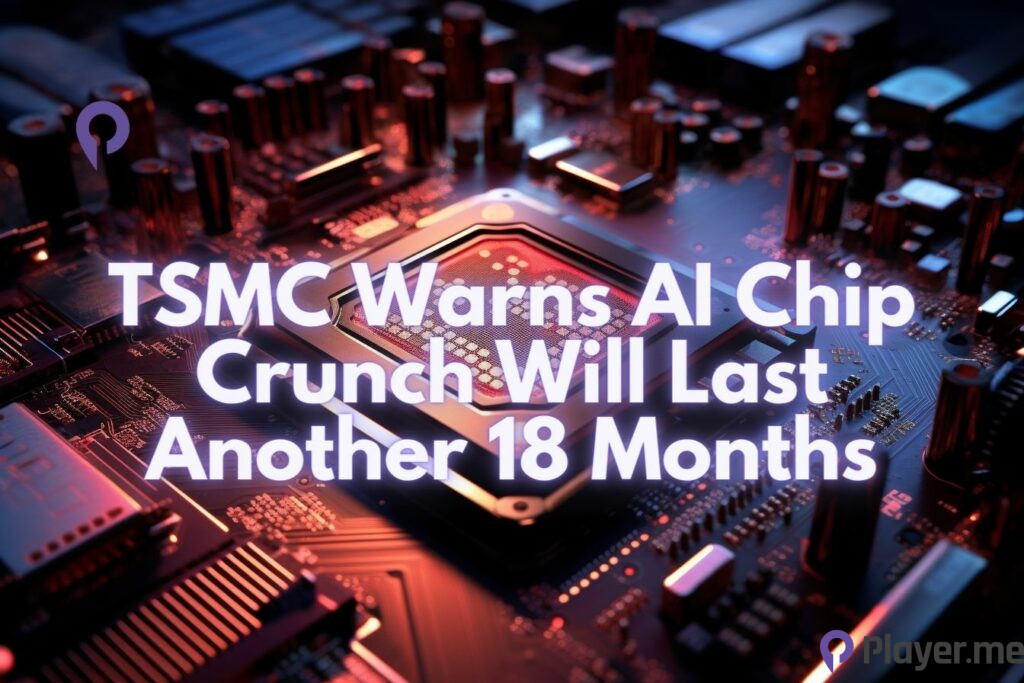The world of technology is in a constant phase of development and progress, with innovations occurring every now and then. Artificial Intelligence (AI), alongside Machine Learning (ML), Deep Learning (DL), etc., are a few breakthroughs that caused paradigm shifts among tech enthusiasts and even laypeople. With the extent of ease and grace these innovations have brought into our lives, it becomes challenging to deny their importance.
The progress of AI and other technological tools depends entirely on the Graphical Processing Units (GPUs) or AI chips. Since AI demands powerful and robust computational and processing capabilities of the system, a high-performance GPU plays a pivotal role in making it fully functional. Therefore, the development of AI and technology relies on AI chips.
China is on the front seat of AI development with a higher demand for AI chips, making it a lucrative client for the leading chipmaking company NVIDIA. However, the restrictions imposed by the U.S. on the AI chip export have created a massive AI chip crunch. The Chief Executive of Taiwan Semiconductor Manufacturing Company (TSMC), Mark Liu, forecasted the AI chip shortage to last for another 1.5 years.
Also Read: Meta Is Developing a New, More Powerful AI System as Technology Race Escalates
TSMC – Leading Chip Manufacturing Company
If you are into video games, you will know about the dependence of gamers on NVIDIA’s GPUs for running high-profile and heavy games on your computer system. Content creators, including videographers, also need GPUs of high specifications to level up their working ecosystem. Thus, whenever there is a discussion about GPUs, the name NVIDIA always comes to the rescue.
TSMC is the Taiwan-based global semiconductor chip manufacturing business that comes before NVIDIA regarding its importance and need. Since NVIDIA manufactures GPUs and high-performing processors, it relies on TSMC for raw materials, including wafers and packaging. The long-awaited GPU models from NVIDIA, H100 and A100 are anticipated due to TSMC since the company can’t meet the product demand.
Popular for its cutting-edge chipmaking potential, TSMC is an industry leader in developing AI chips. Thanks to its state-of-the-art semiconductor chips, TSMC is a key player in the chipmaking industry due to the immense demand for AI chips globally. It has overtaken Intel and other tech giants in revenue since the demand for AI chips has soared higher in the past few years.
TSMC About AI Chip Crunch

Mark Liu, CEO of TSMC, warned the world about the AI chip crunch that it will not end soon. The next year will also witness an extreme rise in demand for semiconductor chips since AI chips are less in supply to the world. Though TSMC is a renowned name with efficient chip-production, the AI chip shortage for a long time is a question mark.
The chip producing company’s chairperson spoke about the AI chip crunch and said that it is not due to production weakness but the packaging shortage. TSMC lacks the potential to fulfil the demand for a special packaging material, Chip-on-Wafer-on-Substrate (CoWoS), which plays a crucial role in the deployment of manufactured AI chips.
Mark is hopeful that the company will meet the extra CoWoS production milestone in about 1.5 years, paving the path for faster semiconductor chip production. It is worth noting that the more this delay in the chipmaking process persists, the development process of AI and other high-level technology will take longer.
Read Also: NVIDIA Earnings: Stock Soars as AI Giant Again Smashes Quarterly Expectations
AI Chip Shortage – What Caused Chip Crunch?

The main reason for the persistent AI chip shortage seems to be the limited availability and manufacturing of CoWoS, causing trouble worldwide. If the chipmaking company TSMC makes quick and reliable moves to handle the situation with expertise, the shortage will not last any longer.
Mark Liu expressed the company’s plan to expand their production line for the packaging material, making it easier for the organisation to manufacture a vast quantity of the required material to cope with the AI chip crunch. TSMC has planned to invest $3 billion to create a facility for enhanced capacity of CoWoS packaging in Taiwan.
The reason behind the high demand for AI chips is the limited supply of packaging material from TSMC. Due to this limitation, many High-Bandwidth Memory (HBM) device manufacturing companies suffer, including NVIDIA, Advanced Micro Devices, Inc. (AMD), etc. The H100 and A100 from NVIDIA and Instinct MI300-series accelerators from AMD are awaited due to the packaging shortage in TSMC.
Related: NVIDIA Unveils Cutting-Edge AI Chip Configuration for Enhanced Performance
AI Chips – Market Demand at Its Peak
Semiconductor chips or AI chips function as a catalyst or performance booster for AI development. The AI progress is a challenge without the availability of AI chips, making them key components to drive high-scale AI improvement. As per the statistics, AI chip market value will hype from $20 billion in 2022 to $165 billion by 2030.
Since chipmaking businesses are limited, with only a few companies contributing to this giant industry, its demand against supply is higher. Another factor that gives rise to the demand for AI chips is the U.S.’s strict and limited export policies of semiconductor chips to various parts of the world, including China.
TSMC can eliminate this shortage by deploying enhanced production to avoid packaging stoppage, contributing to a balanced market of AI chips. It will not only prosper the AI industry but can also save TSMC from competitors. Intel, Samsung, Chipzilla, etc., are a few names in the chipmaking industries with their high-quality packaging materials.
Frequently Asked Questions
Is TSMC Mightier Than Intel?
Intel is a market leader in the global tech industry with Central Processing Units (CPUs) manufacturing, while TSMC is the largest third-party contract chipmaker in Taiwan. Their business models are different, yet TSMC is mightier in terms of AI chips with higher demand in the market.
Why Are AI Chips So Important?
AI chips play a pivotal role in AI models, especially generative AI, to handle the widespread use of the technology and improvement of its futuristic features. Semiconductor chips provide AI with the power to process extensive processes effectively.
Can China Manufacture AI Chips?
China can produce AI chips with the global third-party chipmaker TSMC, but they need U.S. tech companies like NVIDIA for high-end semiconductor chips. Chinese companies like Huawei and Biren can produce chips, but they function less sophisticatedly as compared to their U.S. counterparts.





